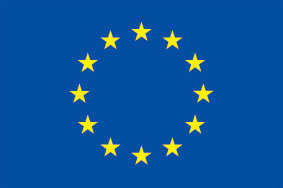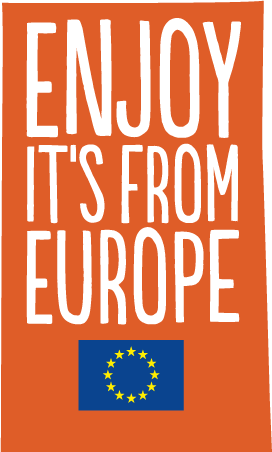EU PORK
Safety
Traceability
Traceability is a key aspect for maintaining food safety in the EU, it permits tracking food, animal feed, and ingredients throughout all the stages of the production and distribution chains in order to address risks and protect public health. Traceability is essential when a risk is discovered in food, as it allows the authorities to go back to the source of the problem and isolate it, causing the minimum damage possible to the consumer and reducing the economic risks in the production and distribution chain.
EU traceability laws follow what is called the “one step back – one step forward” policy, which obliges all businesses in the food sector to keep track of the immediate supplier and immediate customer for every product. Food business operators need to keep information such as name and addresses of the suppliers and customers, quantity and description of the food, reference identifying the lot or batch, and date of dispatch.
Traceability involves every aspect of the pig farming and pork production industries. In this way, every animal must be tagged as part of a batch. In the slaughterhouse, the pork carcasses are individually stamped with the traceability code of the abattoir that identifies every pig batch by the holding of origin and every carcass individually. When the meat is processed and packaged, the product will have a batch number that identifies the processing plant, and from which anyone can trace back the information throughout the entire production chain up to the pig batch and holding where it was bred.
Biosecurity
Biosecurity measures are key to the development of pig farming in the European Union, as they act as a prevention of threats to animal and human health. Biosecurity measures include the regulation of the movement of people in and out of the farms, procedures for cleaning and disinfecting facilities and the usage of protective gear by employees.
All workers and visitors entering the farm buildings are required to go through different steps to ensure disinfection. The safety and health of the pigs is essential to maintain the highest quality standards followed by all EU farms, so those in contact with the farm must shower, disinfect hands, and always wear protective gear such as exclusive farm clothes and face masks.
Similar biosecurity measures are taken during the rest of the production process, including in live animal transport vehicles, slaughterhouses, processing and packaging plants and so on, so the safety of the products is ensured.
Disease Control
In order to prevent, control and eradicate diseases, the European Union has a set of specific legislation for several animal diseases depending on their potential impact. These legislative measures include notification obligations for new cases, diagnostic methods, treatment and surveillance of cases.
With regards to diseases affecting pigs, the EU has specific legislation for African Swine Fever, Classical Swine Fever, foot-and-mouth disease and Porcine Epidemic Diarrhoea. In order to quickly control possible outbreaks, the EU established the Animal Disease Notification System (ADNS), which ensures rapid exchange of information between the competent authorities responsible for animal health in each EU country and the Commission on outbreaks of contagious animal diseases.
Feed safety
To ensure that the final product is safe for human consumption, the EU puts an emphasis on the quality of animal feed, implementing the prohibition on the use of antibiotics, hormones and growth promoters in animal nutrition. The correct care for animals and their natural growth is what distinguishes pig breeding in Europe. The usage of any substance having a hormonal action for growth promotion in farm animals is forbidden in the European Union since 1981 as well as other additives used for growth promotion such as ractopamine. Moreover, in 2006, the EU banned all antibiotics used as growth promoters in animal feed, regulating their use for disease treatment under supervision of a veterinarian, and also controls the content of undesirable substances such as heavy metals on animal feed. Refer to the European Food Safety Authority for more information on animal feed additives and their control in the EU.
This way it is possible to ensure that the European pork achieves the safety standards on maximum residue limits. EU meat is completely free of antibiotics and other medicines and substances that might cause harm to human health.
The quality and safety of the feed does not only have an impact on the health of animals and consumers, it also influences the tenderness and flavour of the meat. Therefore, European pork, coming from quality grain-fed pigs, is not only safe, but also exceptionally tender and juicy.




